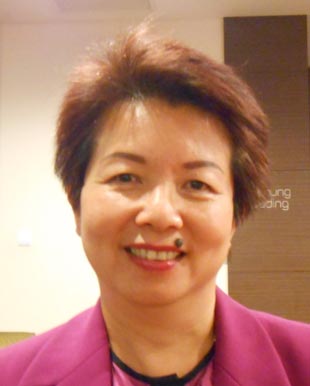
Anne Kung
KUCHING: Instacom Group Bhd (Instacom) continues to see demand for its mainstay business such as telecommunication engineering services but also hopes to diversify into other avenues.
Last year saw Instacom scouting for alternative avenues to expand its business base. The group completed its acquisition of Neata in January, which led to the subsequent diversification of the group’s business into the aluminium design and fabrication sector as well as civil engineering and the construction portfolio.
“We hope to complement what we now do with the activities of our new acquistion,” chief executive officer Anne Kung told The Borneo Post on the sidelines of its Annual General Meeting here on Tuesday.
This was despite the group recording weak results for 2014. According to Instacom’s annual report, the softening market for telecommunication engineering services has impacted the group and this was thus reflected in the group’s weaker performance last year.
For the financial year ended (FYE) December 31, 2014, the group achieved revenue of RM66.008 million, a decrease of RM54.426 million as compared to the previous year.
Consequently, profit before tax for 2014 also suffered a decrease, dropping to RM3.724 million, as compared to RM25.532 million recorded in 2013.
That said, Kung noted that there continues to be demand for Instacom’s businesses.
She acknowledged that the telco industry itself was also facing challenges, resulting in Instacom becoming more cost-conscious which has led them to share their infrastructure rather than building their own.
“Having said that, the nature of the industry that we are all in is that there is continuous demand for infrastructure, as all of us are aware,” she said.
Kung believed there will certainly be more demand for fibre infrastructure because of the demand for higher speed broadband, “which the telco industry is evidently still nowhere near to satisfying the demands of the market that is still hankering for faster speeds”, she said.
“But I think the telcos themselves are now more cost-conscious, so rather as in earlier years when everybody was building their own infrastructure, today they are looking to see whether they can share,” she added.
From Instacom’s viewpoint, Kung noted that they are looking to have the government spending more of the Universal Service Provision Funds, which is after all, contributed by all the telcos and these are monies which are meant to build infrastructure in places where it is not commercially viable.
